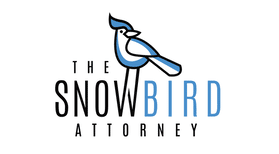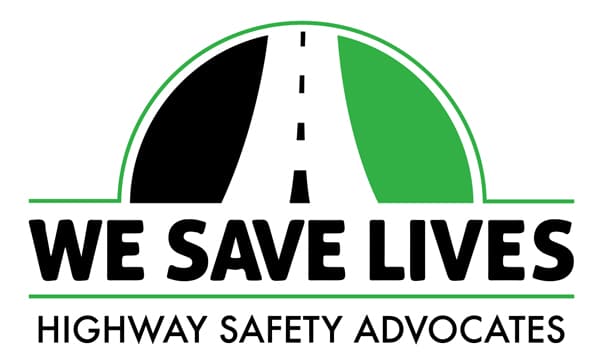
Recovering from a motor vehicle crash can be a challenging and an uncertain time, and it is completely normal to have questions you might feel uncomfortable asking. Here is a list of things you might want to know but may be hesitant to ask, along with the answers to help guide you through your recovery journey.
How can I tell if I am just feeling sore or if something is seriously wrong?
Answer: Many motor vehicle crash injuries result in soreness or stiffness in the days following the crash, but it’s important to trust your body. If pain persists, gets worse, or you experience new symptoms (e.g., numbness, dizziness, severe headaches), that is a sign you may need further medical evaluation. Always consult with your doctor about any concerns. It is extremely important that you advocate for yourself.
Will my life ever be the same again?
Answer: This is a very common worry for crash victims, especially if the injuries are significant. While it may take time, many people do recover and adapt to their new circumstances. Your life may be different, but with treatment, rehabilitation, and emotional support, you can regain independence and enjoy life again. Focus on the present, and take it one step at a time as you work with your medical team.
What if I am not healing fast enough? Should I be worried?
Answer: Recovery can be a slow process, and healing times vary. It’s common for some injuries to take longer to heal, especially soft tissue injuries or fractures. If your healing seems slower than expected, always speak with your doctor. They can adjust your treatment plan or recommend other therapies to improve recovery. Patience and persistence are key.
How will I know if my injury is getting worse?
Answer: If you experience increased pain, swelling, numbness, weakness, vision loss, severe headaches, or changes in your ability to move, it may indicate your injury is getting worse. Always report any changes to your doctor, address your questions and concerns to medical professionals who will advise you on the next steps.
Do I need physical therapy, and how long will it take?
Answer: Physical therapy can be a critical part of recovery, especially for musculoskeletal injuries. The length of therapy depends on your injuries and progress, but it could range from a few weeks to several months. Your physical therapist will tailor the plan to help you regain strength and mobility.
What if I do not feel comfortable suing or pursuing legal action?
Answer: It’s normal to feel uncomfortable with the idea of suing someone or you might even have feelings of guilt, but keep in mind that pursuing legal action is about getting the compensation you deserve for your medical bills, lost wages, and pain and suffering. A personal injury lawyer can guide you through the process, answer your questions and explain your options, so you are not forced into anything that you are uncomfortable with.
Why do I feel like I am a burden to my family or friends by needing so much help?
Answer: It’s common to feel uncomfortable about asking for help, but remember that your loved ones want to support you through your recovery. If you need assistance with daily tasks, transportation, or emotional support, do not hesitate to reach out to them. Allowing others to help is part of the recovery process, and most people will be glad to assist as you heal.
What if my injury is permanent? How will I manage?
Answer: It’s completely normal to fear permanent injury, especially if you are dealing with pain or mobility issues. If your injury is indeed permanent, you will likely need to adjust your lifestyle. There are many resources and strategies to help you adapt, such as physical therapy, assistive devices, or mental health counseling. Work with your doctors to understand your prognosis, and focus on living as fully as possible within your new circumstances.
When can I drive again?
Answer: Resumption of driving will depend on your physical ability to drive safely. Many crash survivors may be instructed to wait until their doctor clears them. Driving before you are fully recovered could put yourself and others at risk on the road.
What should I do if I experience setbacks in my recovery?
Answer: Setbacks can happen during anyone’s recovery. If you notice your pain worsening or new symptoms, it’s important to communicate with your doctor right away and ask questions. They may adjust your treatment plan or conduct additional tests to ensure you are healing correctly.
What are my options if I cannot return to work?
Answer: If you cannot return to work due to your injuries, you may qualify for workers’ compensation, disability benefits, or short- or long-term disability insurance. It’s also worth discussing with your personal injury lawyer if the collision wasn’t your fault, as you may be entitled to compensation for lost wages.
How can I get back to feeling like myself again?
Answer: Recovering physically and emotionally takes time, but it’s possible to feel like yourself again. Start by focusing on small goals and celebrating progress, no matter how small. Engage in activities that bring you joy (when appropriate for your recovery), seek emotional support through counseling if needed, and be patient with yourself. Healing is a process, and it is okay to take it one day at a time.
How do I deal with the trauma and anxiety from the crash?
Answer: It’s normal to experience anxiety, depression, or post-traumatic stress disorder (PTSD) after being injured in a motor vehicle crash. These emotions are part of the trauma, but if they persist, it is important to seek professional support from a therapist or counselor. If you are struggling emotionally, seeking help from a therapist or counselor is a positive step which can help you cope with anxiety, flashbacks, or emotional distress. Do not hesitate to talk about your feelings with someone you trust, and give yourself permission to seek help.
What if I feel worse after my treatment? Is that normal?
Answer: Sometimes, physical therapy or other treatments can initially make you feel worse before you start feeling better. This is especially true for injuries like back or neck problems. However, if the pain persists or worsens significantly, it’s important to communicate with your healthcare provider. They may need to reassess your treatment plan or explore different therapies.
Should I accept the settlement offer from the insurance company?
Answer: Insurance companies often offer quick settlements that may not fully cover the cost of your medical bills, pain, and suffering. Before accepting any offer, consult with a personal injury lawyer to ensure the settlement is fair and that you are not giving up your right to pursue further compensation if necessary. It’s better to fully understand your claim before agreeing to anything.
What if I never feel the same again?
Answer: It is normal to worry about never feeling the same again after a crash, but with the right treatment, therapy, and support, many people regain functionality and even improve their quality of life. Recovery might look different than it did before, but it does not mean you cannot live a fulfilling life. Focus on your healing journey, and take things one step at a time.
Will the emotional impact of the crash ever go away?
Answer: The emotional effects of a motor vehicle crash can be lengthy, and in some cases, they can be long-lasting. Talking to a counselor or therapist, practicing relaxation techniques, and gradually confronting the trauma can help. With time, most people learn to cope, but it’s okay to seek help if it feels overwhelming.
When will I get a settlement from my lawsuit?
Answer: The timing of a settlement for your injuries you sustained in a motor vehicle crash can depend on several factors, including the complexity of your case, the severity of your injuries, the insurance companies involved, and whether there are any disputes. If you’re still undergoing medical treatment, it’s important to wait until you have reached maximum medical improvement (MMI), which means that your doctor believes your injuries have healed as much as they are going to. Once you have a clear understanding of the future treatment you’ll need, your lawyer can calculate the estimated future medical costs. These might include ongoing medical care, rehabilitation, surgeries or potential home health care. The costs should reflect the likely expenses you will incur over time.
Is it okay to ask to change a treatment provider?
Answer: If you feel unsure about the care you are receiving, it’s okay to ask questions or seek a second opinion. Trust is essential in any healthcare relationship, and you should feel comfortable with the advice and treatment plan your medical team is recommending. If you ever feel uncomfortable, it’s important to voice your concerns or look for a provider who meets your needs. Your well-being should be the top priority.
When can I go back to work?
Answer: It depends on your injuries and the type of work you do. Some individuals can return to light duties while they recover, but if you have serious injuries, you may need extended time off. Your doctor will provide a recommendation based on your progress.
Recovering from a motor vehicle crash is often a complicated and emotional journey, but having answers to these questions can help alleviate some of the uncertainty. Make sure to communicate openly with your medical providers, family, and legal professionals throughout the process to ensure a smooth recovery.
It is so important to stay informed, ask questions, and seek support when needed. I had so many questions when I first became a crash survivor. It’s a learning process, but reaching out to others made all the difference. Surviving a crash is more than just healing wounds. It’s a long journey of rebuilding, mentally and physically. If you have more questions, feel free to ask because together, we heal. Whether it’s advice, support, questions or just someone to listen, we’re here to help. No one should have to go through this alone.
S. Dawne McKay is a survivor of a horrific crash that changed her life forever. Dawne shares her personal journey as a Crash Survivor Blogger and also collaborates with crash survivors as Guest Bloggers allowing them an opportunity to share their stories. Dawne is also the author of the book, “Talk Crash to Me – What to Expect After Surviving a Collision and How to Manage Your Recovery” which is available for purchase on Amazon.





